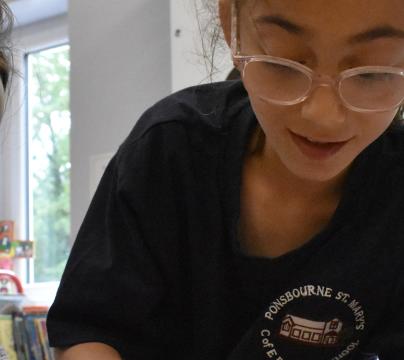This project was a partnership between HFL Education and Rethinking Assessment. It focused on collaboration in the classroom and aimed to support and develop approaches to assessment and pedagogy which promoted equity and a sense of belonging to all children.
Over the course of one academic year, schools worked with HFL and Rethinking Assessment to deepen approaches to pedagogy and assessment of collaboration, with the final aim of designing a digital learner profile to capture and evidence learning and achievement beyond a narrow set of academic data. Schools then implemented approaches to support collaboration and piloted the learner profile.
The focus was on pupils in Year 5 in Sept 2022, involving schools that were already implementing a Learning Powered Approach to the curriculum, assessment and pedagogy, aiming to use the pilot to develop/strengthen evidencing of the skill of collaboration across the curriculum and as an opportunity to support the evidencing of a broad, balanced and ambitious curriculum for all.
What were the aims of the Rethinking Assessment project?
- To improve teachers’ assessment literacy
- To develop a common language and understanding around collaboration
- To develop resources for teaching and assessing collaboration
- To improve pedagogy - explicit teaching of collaboration
- Pupils to understand their strengths re collaboration, and broader dispositions valued
- Learner profile to showcase collaborative work and provide space for reflection/tool for presentations of learning
Why collaboration?
Collaboration is more complex than simply working with others; to collaborate is an action where two or more learners pool knowledge, resources and expertise from different sources in order to reach a common goal. There is a distinction between interdependence and independence which provides some insight into the nature of collaboration. Collaboration suggests shared responsibility and an active division of labour within the group or pair. See Scoular, C. et al. (2020) and Evans, C. M. (2020) for further reading.
Collaboration has been shown to:
- Enhance learners’ cognitive development
- Support learners’ accountability, ability to ask questions and justify responses, support flexibility in problem-solving, and reflective skills
- Help learners process information differently when they work in groups compared to working independently
- Stimulate critical and creative thinking (Lai and Viering, 2012)
- Promote metacognition and self-regulated learning
What is a learner profile?
A learner profile is a digital record of a students’ learning, their strengths and achievements, inside and outside of formal education and into adulthood, across a number of core dimensions.
Its purpose is to:
- Provide a much broader and richer view of student capability and achievement
- Enable learners to understand themselves and their strengths, able to tell the story of who they are, what they know and what they can do, at different points in their lives
- Rebalance and broaden what is valued in formal education, thereby broadening curriculum and learning outcomes, using a range of assessment methods that are fit for purpose.
Project delivery
This project supported 6 Hertfordshire schools to explore approaches to embedding collaboration into the curriculum and develop a framework for assessing collaboration in the classroom. The group chose a collaboration framework originally designed by the Holy Family Catholic MAT as a tool for commonality of language, providing a common reference point for evaluation / comparison - not as a drive towards target setting.
The work with Rethinking Assessment connected the schools with a wider innovation network, with sessions delivered by Professor Bill Lucas (Rethinking Assessment and University of Winchester) and Emily Reid (HFC MAT) leading the work of the Creativity Collaboratives around the country.
What were the outcomes of the Rethinking Assessment project?
You can read here about the journey of the 4 schools that completed the project, and the outcomes in each school:
- The Collaboration progression framework (with credit to Holy Family Catholic MAT and the Creativity Collaboratives) and progression developed from this by Gade Valley Primary School (pdf*) and by Highover JMI School (pdf*)
- You can see the learner profile digital prototype developed for schools to trial in the images below.
- You can access the published site here and access the folder to make your own editable copy here. The folder also contains a guide to saving the editable copy to your own Google Drive and setting up Learner Profiles for your children.
- A webinar event presented by Shephalbury Park Primary on learner profile implementation
Contact the HFL Assessment team for more information on email: hfl.assessment@hfleducation.org
* These documents are hosted on a Google Drive.

Figure 1: Learner Profile homepage top

Figure 2: Learner Profile homepage bottom

Figure 3: Learner Profile collaboration overview page

Figure 4: Learner Profile evidencing collaboration page

